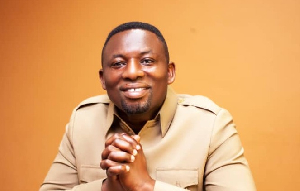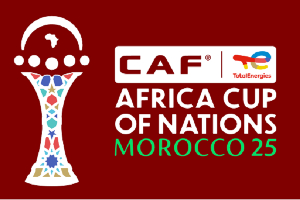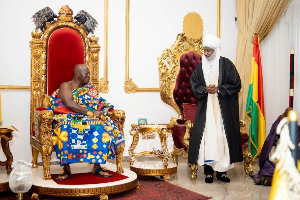I was pleasantly surprised to read on the website of the Ghanaian Statesman, the half-century – or Golden Jubilee – anniversary of St. Peter’s Secondary School, affectionately called PERSCO. Pleasantly surprised because, for the most part, PERSCO offered me the profoundest educational experience that I could ever have received growing up in Ghana. I am also proud to reveal the fact that it was at PERSCO that I began my journalism avocation, a fervid avocation that I have been practicing for some thirty years now.
When I was in Form Four, I was named Editor of the historic Mountaineer magazine, with Senior Omari (I forget his first name) as Editor-in-Chief. Omari was one helluva multi-talented student who seemed to have a knack for practically everything, with the significant exception of athletics. I, initially, could not fully appreciate the latter anomaly, for Omari also possessed the sort of long – swan-like – legs that could have offered the best 400-meter runners the proverbial run for their money. Instead, he had chosen the apparently more rigorous option of exercising his cognitive muscles over those of his brawns; he probably envisaged the latter to be rather crude and woefully lacking in the caliber of refinement that obviously came with patrician existence, in terms of qualitative leadership skills, I mean.
Two things, though, stand out in my mnemonic bank about Omari. He was far and away the fastest typist in the history of the Okwawu (or Kwahu) University, as PERSCO was also affectionately known. Our school was also known to have, perhaps, the finest typing pool of any top-ranked secondary school in the country. And our headmaster, a German priest by the name of Father Josef Glatzel, did not hesitate to vaunt at one of the national conferences of heads of government-assisted schools that St. Peter’s had the kind of well-equipped science laboratories that even tertiary flagship academies like the University of Ghana and also the University of Science and Technology could only faintly dream about.
And Father Glatzel, we students affectionately called him “Owudo,” may well have been right. For while I attended PERSCO, from 1976 to 1981, the school consistently ranked among the top-5 GCE-nicking schools in the country. But we were particularly “bad” at the Advanced Level. And talking about the latter, St. Peter’s had what may aptly be called the Sixth-Form of Choice. In some years, nearly a quarter of the University of Ghana’s Medical School freshmen were rumored to be Peter’s Boys, as we were also affectionately known, largely by our girlfriends in such schools as MPASS (Mpraeso Secondary School) and APSEC (Abetifi Presbyterian Secondary School). Our real “sister school,” however, was St. Rose’s Secondary School, located at Akyem-Akwatia.
Maybe our affinity for the ladies of the latter school, another quite decently performing school, had something to do with the rhyming names of the two towns in which these two top-rated Catholic schools were located. Many people also found it quite difficult to tell the difference between Okwawu-Nkwatia and Akyem-Akwatia. And now, in retrospect, it appears as if such difficulty may well have stemmed from the fact that both “Akwatia” and “Nkwatia” sounded as if they were peopled by characters from Jonathan Swift’s classic satirical novel, Gulliver’s Travels.
In any event, as far as similarities and differences go, the preceding was just about the farthest extent of the same. The whopping distance between St. Rose’s and St. Peter’s pretty much guaranteed that the relatively more aggressive denizens of the latter institution would contend themselves with neighborhood quarry. This was hardly what Americans routinely term as a piece of cake. For all the neighboring schools were cooed or mix-gendered, and since traditionally more guys got the privilege of attending secondary schools, particularly boarding schools, it meant that Peter’s Boys were faced with stiff competition against the Abongo Boys of MPASS and APSEC.
No matter, Peter’s Boys almost always won out, hands down. For we had readily figured out, long before arriving at the School, that its sterling academic record was something that both progressive and deviously calculating girls found to be extremely attractive. Interestingly, however, in a quite oxymoronic manner, the school whose females appealed to us the most, was also the school which we pretended to harbor the basest contempt for. But, obviously, what ostensibly paraded as abject contempt, academic contempt, that is, was actually a defense mechanism. For any PERSCOVITE, or PERSCOBA, who did not have a dame at MPASS, was an outright loser; so I guess one could aptly classify me as a bona fide member of the latter group.
I had Scripture-Unionized myself to such an ascetically sublime stratosphere as to be readily mistaken for a zombie. Unbeknownst to me, however, such asceticism shall soon be serendipitously recognized as a trait with a savvy method and edge to it. This would not delightfully come to light until sometime in the middle of 1978, when having mercilessly trounced the men’s hockey team of Mpraeso Secondary School, PERSCO’s mammy-wagon would be ambushed and callously incinerated by these romantic also-runs in their very own backyard. That fateful event, in retrospect, appears to have been the closest that any PERSCOVITE, or PERSCOBA, came to bragging about having been a war veteran. Perhaps a veteran actor in Erich Maria Remarque’s All Quiet on the Western Front, an apocalyptic and emotionally grueling account of World War I.














